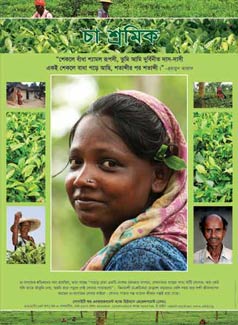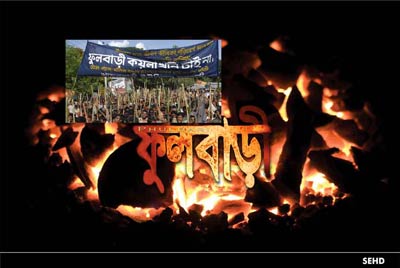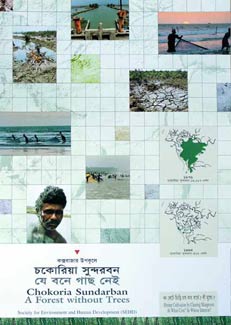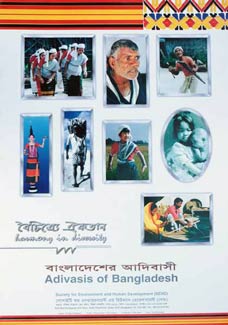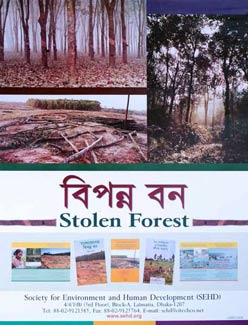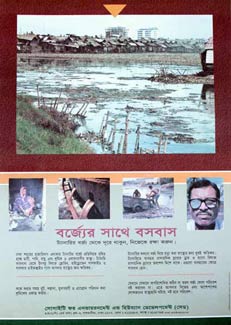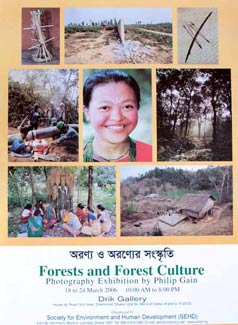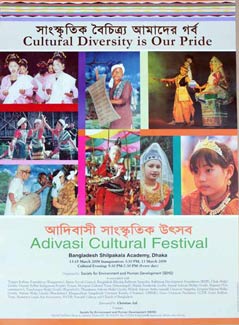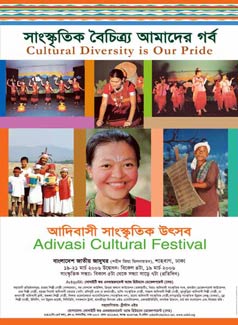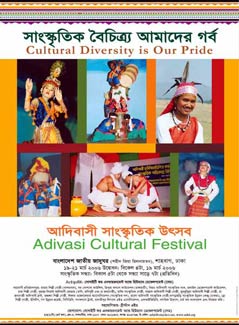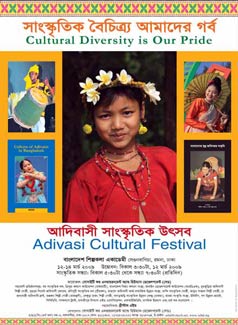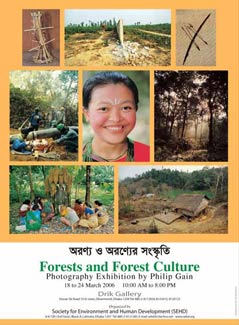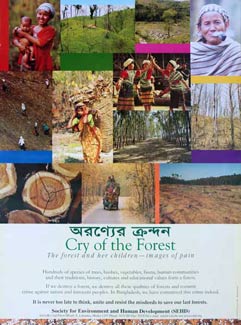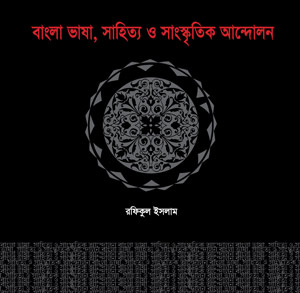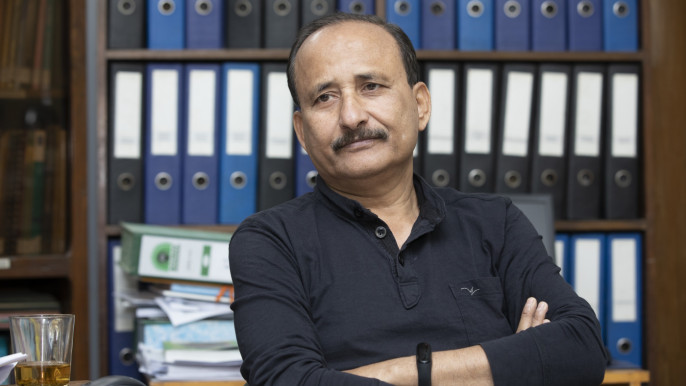SEHD director, Mr. Philip Gain, conducted the inaugural session explaining that the objective of the workshop, to promote investigative journalism, was one of basic mandates of SEHD. He said that one of the training’s focuses was addressing the issue of industrial pollution, with special emphasis on Hazaribagh tannery, which is considered as one of the most polluted areas in Dhaka. Mr. Gain also explained some of the guidelines for journalistic writing.
Energy, a much talked about issue of recent times in Bangladesh, came up in a session of the training. Dr. Badrul Imam, a professor of geology of Dhaka University, spoke on “Energy Solutions in Bangladesh: Right Choices to Make”. Dr. Imam criticized policy makers for their reluctance to find alternative to natural gas.
“Overuse of natural gas has put pressure on its stocks. Our policy makers do not think of alternatives. Now we are importing oil for production of electricity. Now our expenditure in oil export has increased to Taka 40 thousand crore from Taka 20 thousand crore,” he said. “This is a serious economic issue.”
Imam however, was optimistic about coal, saying, “Coal is an important source to replace gas. But, extraction of coal is a big challenge.” He added, “Coal has more pollution burden, and the people are against mining through open-pit method.”
The open-pit at large scale may never be done in Bangladesh, he said giving an overview on energy resources in the country.
Pinaki Roy, deputy chief reporter of The Daily Star, conducted another session that day on the topic of reporting industrial pollution.
 On the second day, eminent economist Dr. Hossain Zillur Rahman, lectured on research skills needed to engage in investigative reporting. He suggested to take note of three steps in research— subject selection, information gathering, and analysis.
On the second day, eminent economist Dr. Hossain Zillur Rahman, lectured on research skills needed to engage in investigative reporting. He suggested to take note of three steps in research— subject selection, information gathering, and analysis.
“Presentation of findings is also very important in research. It should be eye-catching,” he said. “The researchers should have the ability to analyze information.”
Dr. Rahman said, “Getting an ‘ideal opportunity’ for research is very unusual, so researchers have to work with many limitations. It is a matter of the proficiency of a researcher to overcome these constrains.”
Dr. Soumitra Sekhar, a professor of Bangla department of Dhaka University, conducted a session on ‘writing right’. He showed the grammatical mistakes made in the newspaper reporting recommending the proper use of language in reports. Dr. Sekhar gave tips to avoid spelling mistakes and grammatical errors. Punctuation, sentence formation, and selecting suitable words in reporting were also some of the topics Dr. Soumitra discussed.
In the third session of the second day, Mr. Amal Kanti Deb, lecturer in Footwear Engineering Department of Institute of Leather Technology, lectured on pollution in tanneries: consequences and solutions. He discussed the history of tannery industry, its production, manpower involved, role of the industry in Bangladesh economy along with its pollution and impact on environment, relocation dilemma of the industry, and health hazards of the tannery workers.
Dr. Amal’s presentation gave good background information to the participants before the next session on “Solid Waste Management in Bangladesh: Experience of Waste Concern” presented by A H Md. Maqsood Sinha, executive director of Waste Concern (WC).
“By converting waste into a resource, the Waste Concern is turning problem into an opportunity,” said Mr. Sinha. He described WC’s activities saying, “We are tackling two major problems of urban environment and soil fertility of rural areas with a single solution of converting organic waste into compost/bio-fertilizer using the principal of public- private and community partnership.”
“Science writers do not necessarily need a science background. An academic background may be helpful but it is not compulsory. They should not have to be master in science,” said science writer professor Muhammad Ibrahim in another session on ‘Writing science: issues of Bangladesh’.
“The science writer should know the issue first. They have to realize the issues to the best of mind and analyze it scientifically. The writers should have a holistic approach,” said Professor Ibrahim.
He suggested the journalists to ask the right questions while news gathering. “The science reporters should be hard working. They should understand the historical dynamics and implications of any scientific invention on people, the economy and related issues,” said Dr. Ibrahim, editor of country’s famous science journal, Biggayan Samoeki.
The third day of the training consisted of field work. Some of the participants visited Hazaribagh tannery while some others traveled to Naryaanganj to witness the recycling training center (RTC) of Waste Concern, which produces compost and biogas recycling waste taken from different locations of Dhaka.
The reporters wrote stories based on their visits. They wrote stories on the health hazards of the tannery industry, relocation of the Hazaribagh tannery, environmental pollution, use of salt in the tannery industry, tannery byproducts and pollution and practices of Waste Concern.
Farid Hossain, AP bureau chief in Dhaka, conducted the last session of the workshop criticizing and analyzing the reports.
“The main objective of reporting is to inform people. Reporters shouldn’t write anything until they clearly understand the subject they are going to write,” said Mr. Hossain.
He suggested that the reporters avoid adjective exuberance in their reports. “Write simply so that your readers can understand what you want to say,” said Farid Hossain before giving away certificates to the participants in the closing session of the three-day workshop.
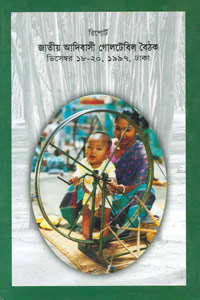

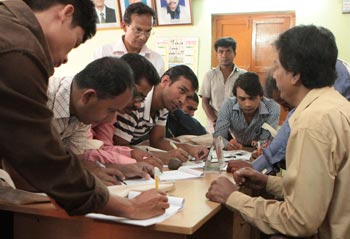
 The Society for Environment and Human Development (SEHD) organized a training for 25 journalists on investigative reporting from March 22 to 25 (2012) at the YWCA auditorium in Dhaka. Journalists from 18 districts working with national and regional dailies and weeklies took part at the workshop.
The Society for Environment and Human Development (SEHD) organized a training for 25 journalists on investigative reporting from March 22 to 25 (2012) at the YWCA auditorium in Dhaka. Journalists from 18 districts working with national and regional dailies and weeklies took part at the workshop. On the second day, eminent economist Dr. Hossain Zillur Rahman, lectured on research skills needed to engage in investigative reporting. He suggested to take note of three steps in research— subject selection, information gathering, and analysis.
On the second day, eminent economist Dr. Hossain Zillur Rahman, lectured on research skills needed to engage in investigative reporting. He suggested to take note of three steps in research— subject selection, information gathering, and analysis.
